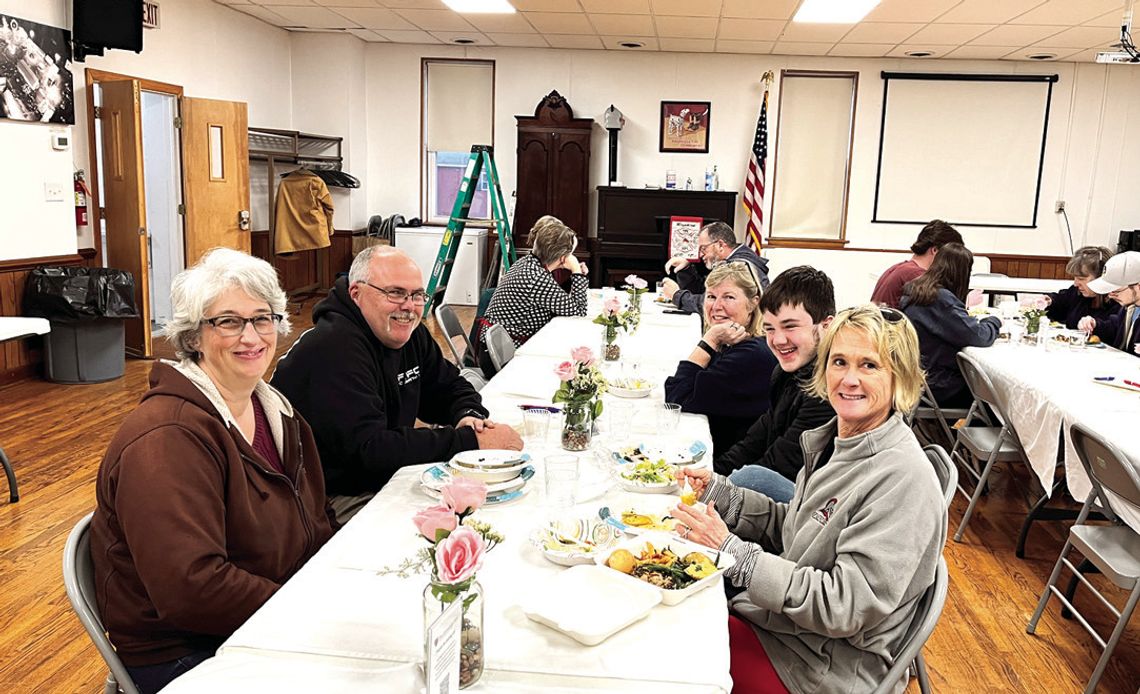The Community Table of Rockbridge was founded on the simple premise that everyone deserves a nourishing meal, regardless of socioeconomic status, and that bringing together folks representing diverse backgrounds to enjoy such a meal has benefits for everyone in our community. Known as the “restaurant without a cash register,” CTR offers its meals free of charge, though donations are accepted from those who can afford it and choose to do so.
CTR serves dinner on Mondays and lunch on Wednesdays at the Rockbridge Area Relief Association’s Piovano Building, 350 Spotswood Drive in Lexington. In partnership with the Helping Hands Market, CTR also offers lunches on Fridays at Fairfield Presbyterian Church. Food for the more than 200 meals a week CTR provides is sourced from the Blue Ridge Area Food Bank, RARA, Campus Kitchen at Washington and Lee University and other area donors.
With assistance from the Rockbridge Area Transportation System, CTR is expanding its mission – to take its nourishing meals on the road – so that mobility-challenged residents from remote parts of Rockbridge County can also be served. The Portable Area Community Table (PACT) has thus been created to serve meals in different areas of the county on a rotational basis.
The first PACT meal was served last month at the Palmer Center and was followed by one at the Raphine firehouse. The next one is being served today, Wednesday, April 5, from 6 to 7 p.m., at the Rockbridge Baths firehouse. Future PACT meals are to be served April 12 at St. John’s Episcopal Church in Glasgow, April 19 at the Goshen firehouse and April 26 at the Natural Bridge firehouse. Future meal locations and menus will be announced on social media and websites as well as at schools and local businesses and in The News-Gazette calendar of events. Those who need transportation to and from these meals can call RATS at (540) 4633346.
PACT meals are a replication of what CTR offers, being served indoors with orders taken based on personal preferences. Volunteers wait tables, serve meals and assume all of the other responsibilities that are necessary for week-toweek operations. Meals include a salad, main dinner dish often with side servings and, of course, dessert.
The idea for PACT was a response to data found in the latest triennial Rockbridge Community Health Assessment conducted by the Live Healthy Rockbridge coalition of different local agencies. The report, published in August of 2021 by Carilion Rockbridge Community Hospital, identified various needs in the community, one of which was creating better access to services such as the meals CTR offers.
In conjunction with the PACT meals, voluntary surveys are being distributed so that participants can identify resources that they would like to know more about. Such community resources include but are not limited to childcare, housing assistance/repairs, transportation, disability services, health care providers (medical, dental, prenatal, nutrition, mental/behavioral, substance use, hospice), food assistance, domestic violence/ victim support services, legal services and employment opportunities.
Based on what participants express in these surveys, the relevant services will follow up to learn more about particular interests and needs, and coordinate, if applicable, to increase accessibility to needed services, reduce food insecurity and improve overall quality of life.
Expanding services requires funding. In June of last year, Carilion Foundation in Rockbridge awarded RATS funding to develop the initial component of providing free meals to residents in rural areas of the county; in August, the Virginia Department of Health, Central Shenandoah Health District, awarded additional funding to RATS to support increased outreach and assistance for those areas. In February, RATS became one of three organizations awarded funding from the National Center for Mobility Management and Community Transportation Association of America under the Ready-to-Launch initiative to provide support for community outreach, information system networking, and development of a sustainable infrastructure. This will allow PACT to operate beyond the duration of grants and also serve as a model for other programs, services and initiatives.
The safety net protecting the more vulnerable members of our community appears to be well girded by many individuals and entities working in unison to provide critical services. We are indeed fortunate to live in such a caring, well-meaning community. To find out more information about PACT, visit https://www.communitytablerockbridge. org/.
.jpg)


